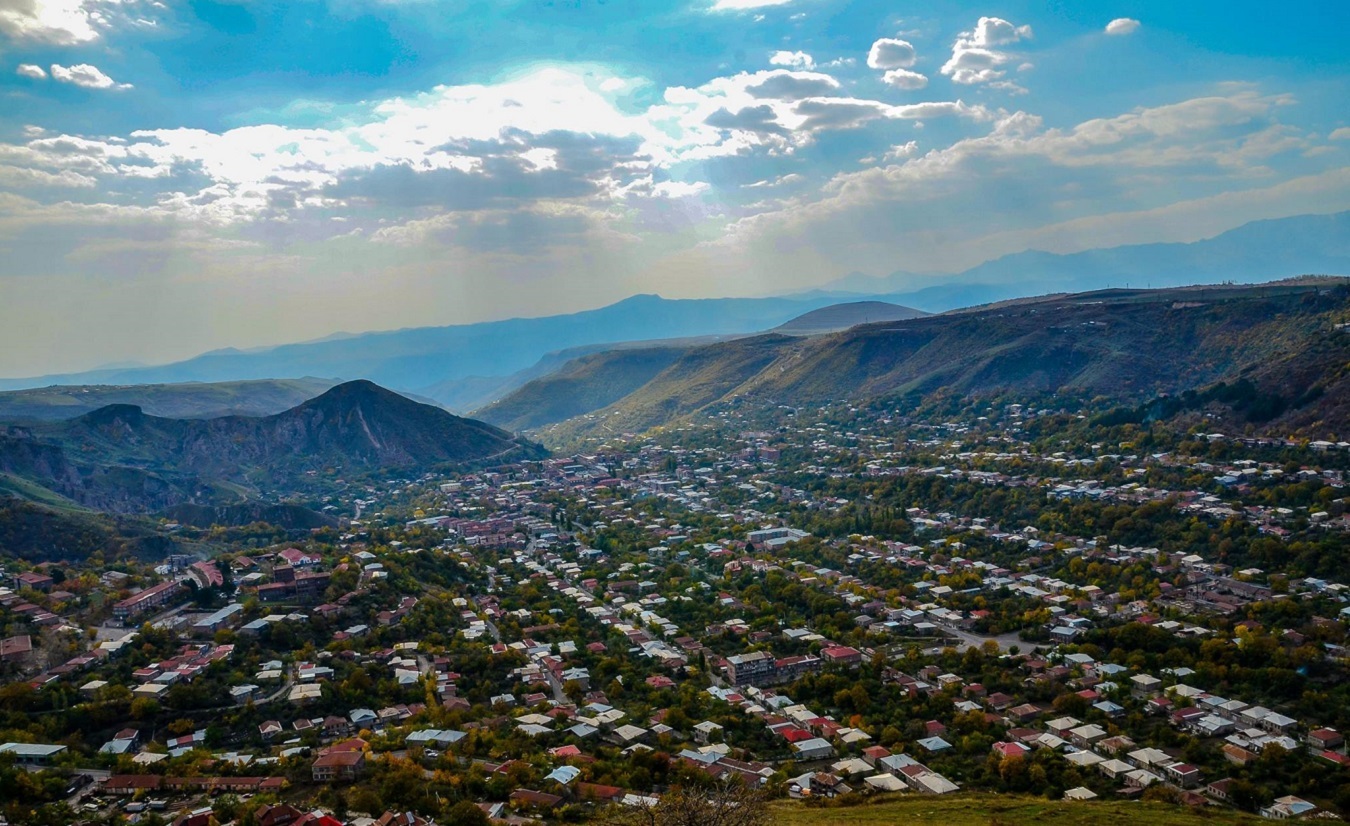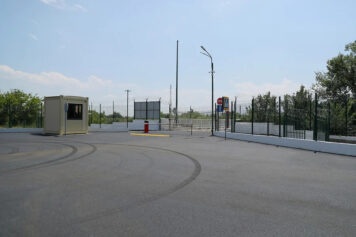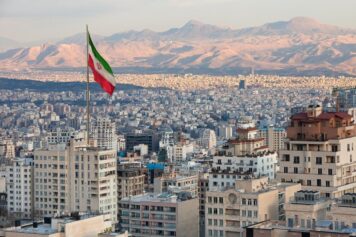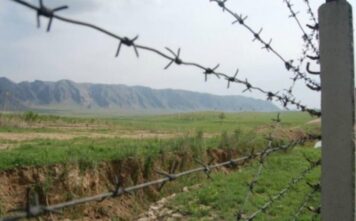The last bastion of geopolitical jihad: Syunik
31.07
2025
Part one
When a state finds itself in a grave situation, morality comes to the forefront, because it is people endowed with morality who are ready for self-sacrifice for the sake of the homeland, and in reality it is precisely they who shape the homeland.
My views and convictions regarding politics and morality are clear. No matter how flexible politics may be, no matter how much it requires decisions adapted to circumstances, there are still principles and red lines that are taboo and must not be crossed—especially when the fate of the nation and the state is at stake. If I myself do not respect my principles and red lines, whether personal or national, then morally I will have no right to speak publicly at all. I have always said that the return to Artsakh will happen, therefore no power can persuade me to abandon this goal or conviction. I have always labeled the authorities as land-sellers and traitors, and even if they offered the treasures of the world, the Pashinyan government will remain for me a state-destroying and nation-destroying gang. If Nikol Pashinyan is a “calamity for the nation,” he can never become “the honorable Prime Minister,” because in that case, sermons about morality or attempts to instill morality in society would be meaningless.
In this respect, the best example is Henrik Igityan’s famous speech in the presence of Gorbachev, with his words addressed directly to Gorbachev.
Indeed, betraying principles is political corruption, not political flexibility. To sell the state’s security and sovereignty is also immoral. But the current authorities consider distracting people from this problem as “flexibility.” They attempt to sell or lease the territory of Syunik for 100 years, but to divert attention from that issue they promote scenarios of attacking the Armenian Church or the question of the Electric Networks of Armenia. This is a flexible technology. In this context it should be noted that of all people, the Civil Contract Party has no right to assess Levon Ter-Petrosyan’s words or deeds, because the prodigal son cannot speak about political morality.
Let us return to the issue of Syunik. One of the world’s superpowers, the United States, is a friendly country to Armenia, but as the English saying goes: “Nothing personal, just business.” Imagine even a private American company coming to Syunik with its own guards, while the Russian 102nd base is still operating in Armenia. Obviously such a thing is impossible—one side would have to leave Armenia. Otherwise Lebanonization or Syrianization threatens Armenia, a scenario that was predictable years ago when indicators of Pashinyan’s failed security and foreign policy showed that this junta was turning Armenia into a field of confrontation between great-power interests. In this light, one should also view the short-sighted plan of nationalizing the Electric Networks of Armenia, the imprisonment of Samvel Karapetyan—circumstances that restrict the financial and organizational activities of actors under Russian patronage.
We believe that in the near future Nikol Pashinyan will announce that in the midst of this global turmoil he has managed to bring American investments into Armenia—despite Russia. He will then announce a specific figure—I would not rule out $5 billion—which the Americans will invest in Syunik for infrastructure creation and for ensuring that NATO’s Turanian route passes unhindered through Armenia. In such a scenario, I do not think the Turks and Azerbaijanis will freely transfer whatever they want under the Americans’ “nose.” On the contrary, the Americans will work systematically to finally shatter Russia’s image in Armenia. And the U.S. is very serious. If there is a corridor in Syunik, then according to World Bank and Forbes estimates, annual transits worth $100 billion will pass from Turkmenistan and Kazakhstan across the Caspian to Azerbaijan, then through the Syunik corridor to Turkey and Europe.
Yet for years populists claimed Russia wanted to seize Armenia’s sovereignty: from Public TV to Nikol’s petty satellites, they tried for five years to convince us that only Russia wanted to control the corridor and the road. But now, in fact, a project is being designed where the U.S. is essentially buying or leasing Armenian territory for 100 years. Whether buying or leasing makes no difference. Nikol’s empty words about Armenia’s sovereignty are bursting one after another—just like his teammates’ lack of political foresight. Nikol has already given the “announcement”, calling it outsourcing, trying to confuse people with wordplay. In fact, he too understands very well that one does not “play games” with the U.S.—you do not invite the world’s most powerful nuclear power into Armenia and then try provincial tricks to deceive it. Nikol fully understands this. Therefore, a simple syllogism, as the classics would say: if he is not stupid, then he is doing it consciously, which means the plan to remove the Russian base from Armenia is nearing its logical conclusion. This will happen unless, of course, there is some cosmic-scale arrangement between Nikol and certain non-American decision-making centers.
At any rate, the Americans are serious about taking control of the corridors, as we see, for example, in Panama—where they even want to change the name to “America.” But let us note that China has veto power here, because this concerns depriving Chinese companies of an opportunity for $40 billion in annual trade. In Syunik’s case, too, there are and will be vetoes, but that is a matter of political bargaining and professional negotiation. China has a serious veto regarding the Syunik corridor. Even if some think that because of the Turkic or Uyghur factor Beijing will retreat, the issue is in the realm of profitable deals. Turkey understands perfectly well that it cannot compete with China. And in the end, in Uyghur settlements China can carry out actions familiar to Turks from their 110-year-old playbook, and apart from a few condemnatory statements the world will do nothing. Iran’s position on this matter is well known. But where is Russia in this situation? Is it still bogged down in Ukraine and unwilling to intervene to restore the disrupted geopolitical balance in the South Caucasus?
It is clear that Lavrov’s plans failed, and through Moscow’s mediation the Artsakh conflict was not settled. Now they speak from neutral positions with good intentions about “support.” But what support is Peskov talking about, and to whom? To Armenia, their supposed strategic partner “on paper,” or to Azerbaijan, which at every step has betrayed Russia? It is understandable that Russia does not want escalation, fearing that Azerbaijan will immediately raise Turkey’s flag and meet new problems. This is diplomacy—understandable, but until when? Until you withdraw your base—the only Russian base left outside Russian borders, in Armenia—and then declare that it was the decision of the Armenian people and its legitimate government, just as Artsakh was surrendered in the same way? Or perhaps by providing no noticeable assistance to Tehran, your strategic partner, ally in an Iran-Israel war, you want to strengthen your position in this region?
I believe that in order to restore its shaken geopolitical balance, Russia does have professional research and polling data on its foreign-policy failures and consequences, and is drawing the right conclusions. And if it does not, then as they themselves like to say: it is your sovereign decision.





